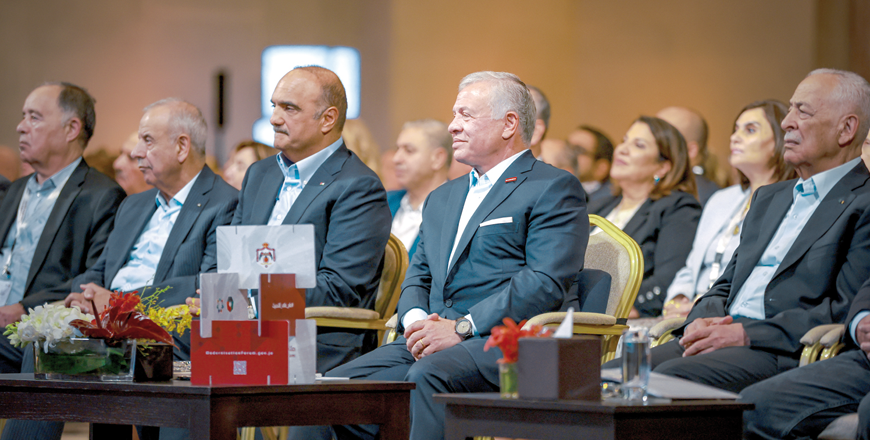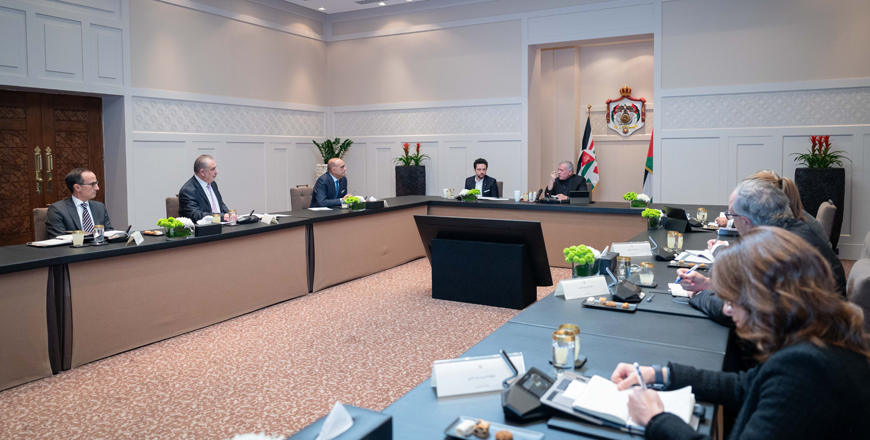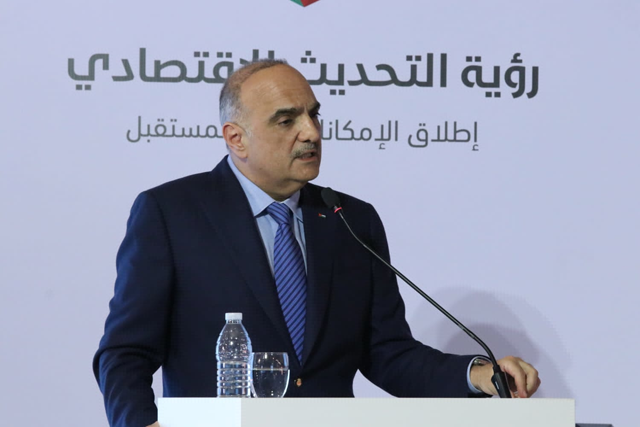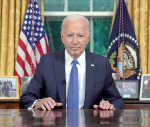You are here
King directs gov't to commit to timetables for implementing economic vision
By JT - Mar 04,2023 - Last updated at Mar 04,2023
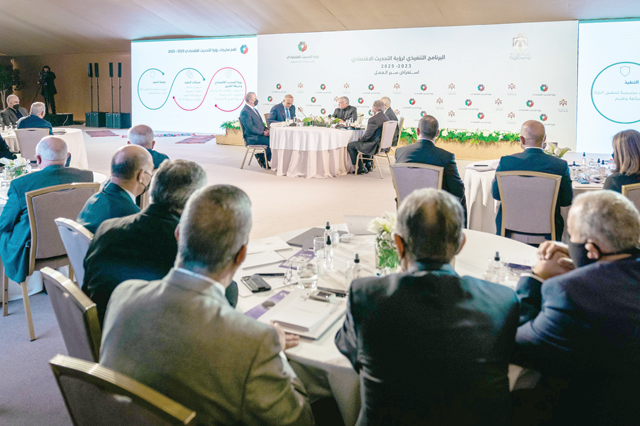
His Majesty King Abdullah attends part of the closing session of an interactive meeting held by the government at the Prime Ministry, to review progress in implementing the executive programme of the Economic Modernisation Vision 2023-2025, on Saturday (Photo courtesy of Royal Court)
AMMAN — His Majesty King Abdullah on Saturday attended part of the closing session of an interactive meeting held by the government at the Prime Ministry, to review progress in implementing the executive programme of the Economic Modernisation Vision (EMV) 2023-2025.
King Abdullah commended the government’s efforts in devising detailed plans and timetables for the EMV, stressing keenness to follow up monthly on implementation with the various concerned ministries, according to a Royal Court statement.
His Majesty directed the government to commit to the timetables for implementing the EMV, urging seriousness in ensuring the success of political, economic and administrative modernisation.
The King called for releasing periodic reports to keep the public apprised of progress in implementing the EMV.
Describing the government’s interactive meeting as an important step to enhance partnership, transparency and follow-up on implementation, His Majesty commended participants’ efforts in guaranteeing the programme moves forward.
The King said progress in execution should not be affected by the change of officials, who will be evaluated based on their commitment to the implementation of the programme.
His Majesty reaffirmed commitment to the political, economic and administrative modernisation tracks as a comprehensive project for the state over the coming years.
Prime Minister Bisher Khasawneh gave a briefing on progress in the first executive programme, which is the cornerstone for other programmes for implementing the overall targets of the EMV.
He noted that Saturday’s meeting covered progress of the first executive programme in 10 sectors, including investment, industry and trade, tourism, digital economy and entrepreneurship, labour, health, education, water and irrigation, energy and the environment.
Khasawneh reaffirmed that guarantees of the EMV’s implementation include the government’s commitment before His Majesty’s close follow-up, as well as the government’s commitment to hold regular meetings to enable its partners from various sectors to monitor progress.
The prime minister said Saturday’s sessions reiterated that the three modernisation tracks are interconnected, in addition to the important role of media as partners in oversight.
In addition, Khasawneh outlined some economic indicators, highlighting that despite challenging regional and international conditions last year, Jordan’s economy grew by 2.7 per cent, with national exports increasing by 36 per cent, while foreign direct investments increased by 97 per cent compared to 2021.
He added that tourism receipts increased by 115 per cent, with a total of 1.4 million tourists, registering a 90 per cent growth in the sector, a figure close to the base year of 2019.
Furthermore, foreign exchange reserves reached record numbers of $17 billion, covering Jordan’s imports for eight months, according to Khasawneh, who added that Jordan was able to contain the impact of inflation caused by the Ukrainian crisis by maintaining inflation rates at 4.8 per cent, with nearly JD1 billion allocated for fuel subsidies and purchases of wheat and barley.
The prime minister said the finance and banking sector has witnessed healthy growth, with Jordan maintaining its credit rating and predictions for it by international agencies raised from stable to positive.
Saturday’s meetings included three sessions that saw the attendance and participation of 13 ministers, a number of senators and members of the House of Representatives, representatives of the private sector and civil society institutions, in addition to a number of journalists and economic columnists.
Related Articles
AMMAN — His Majesty King Abdullah on Saturday attended the closing session of a two-day forum held at the King Hussein Bin Talal Convention
AMMAN — His Majesty King Abdullah on Monday was briefed on progress in the implementation of the government’s executive programme for the Ec
AMMAN — The Economic Modernisation Vision (EMV) aims to raise the economic growth rate to 5.5 per cent, provide 1,000,000 job opportunities


